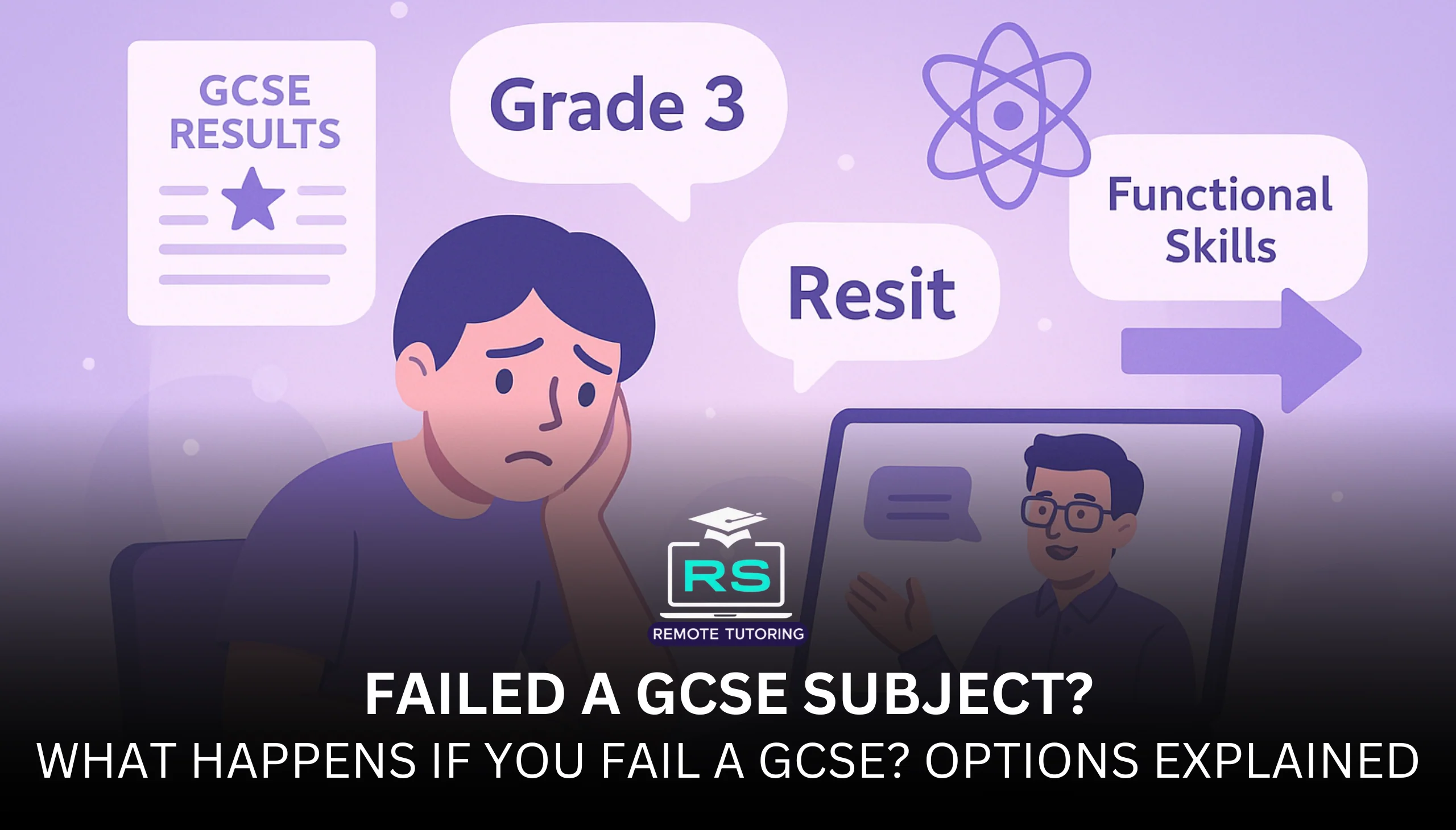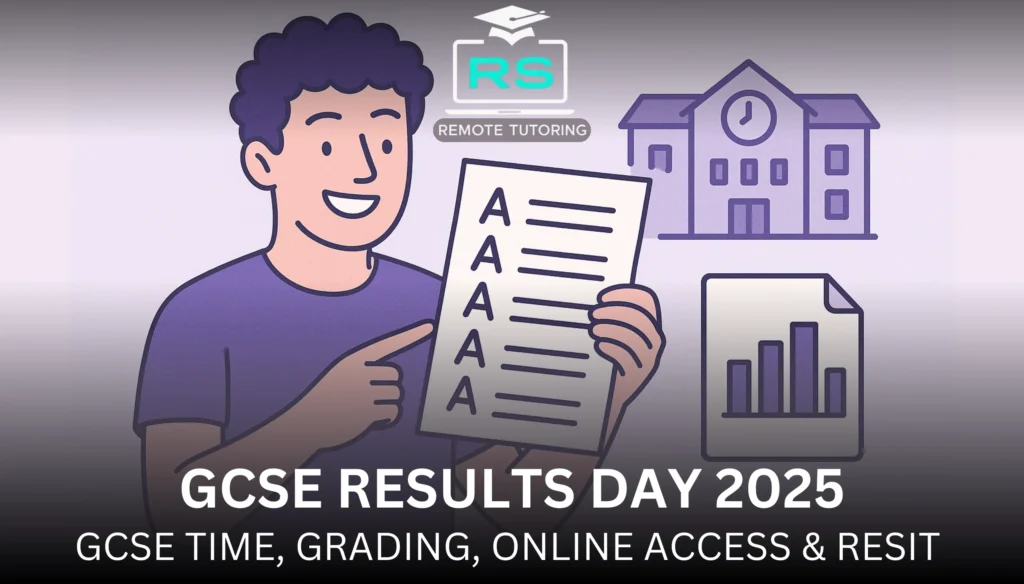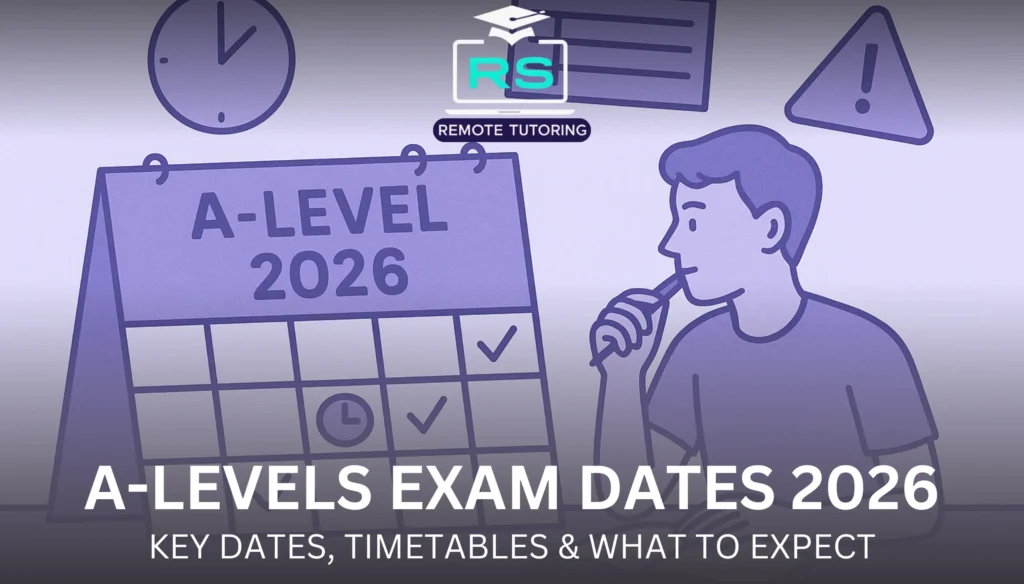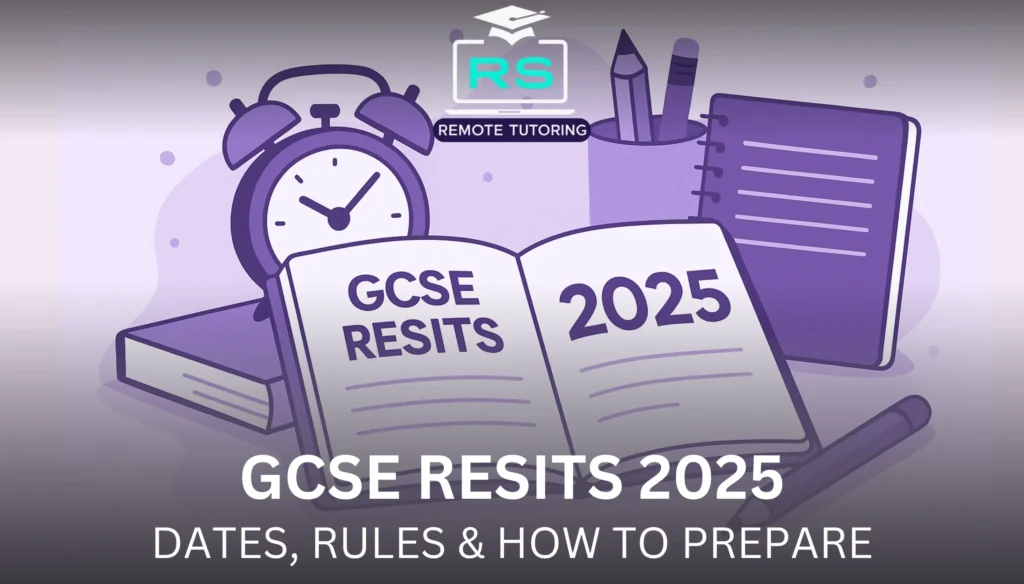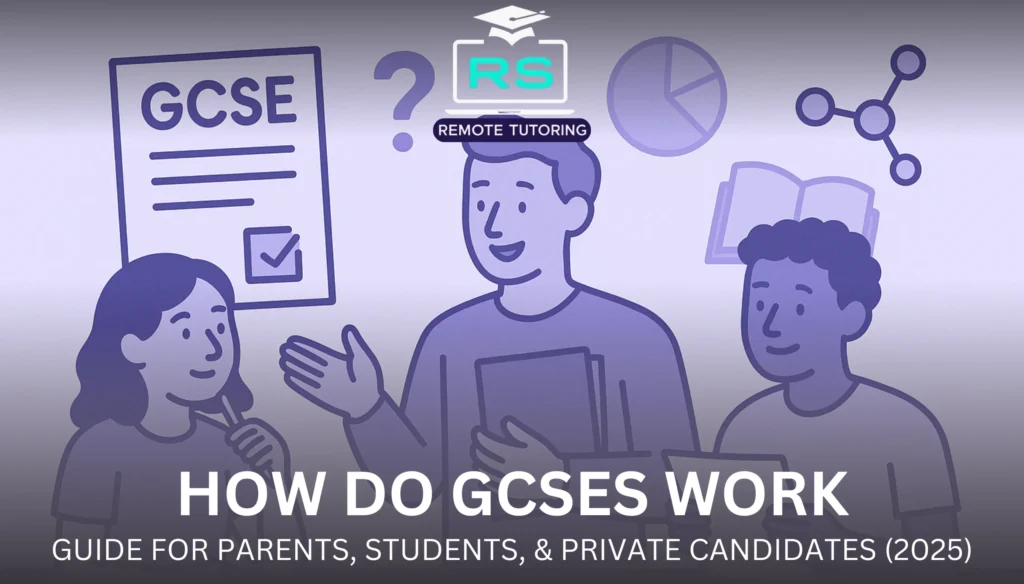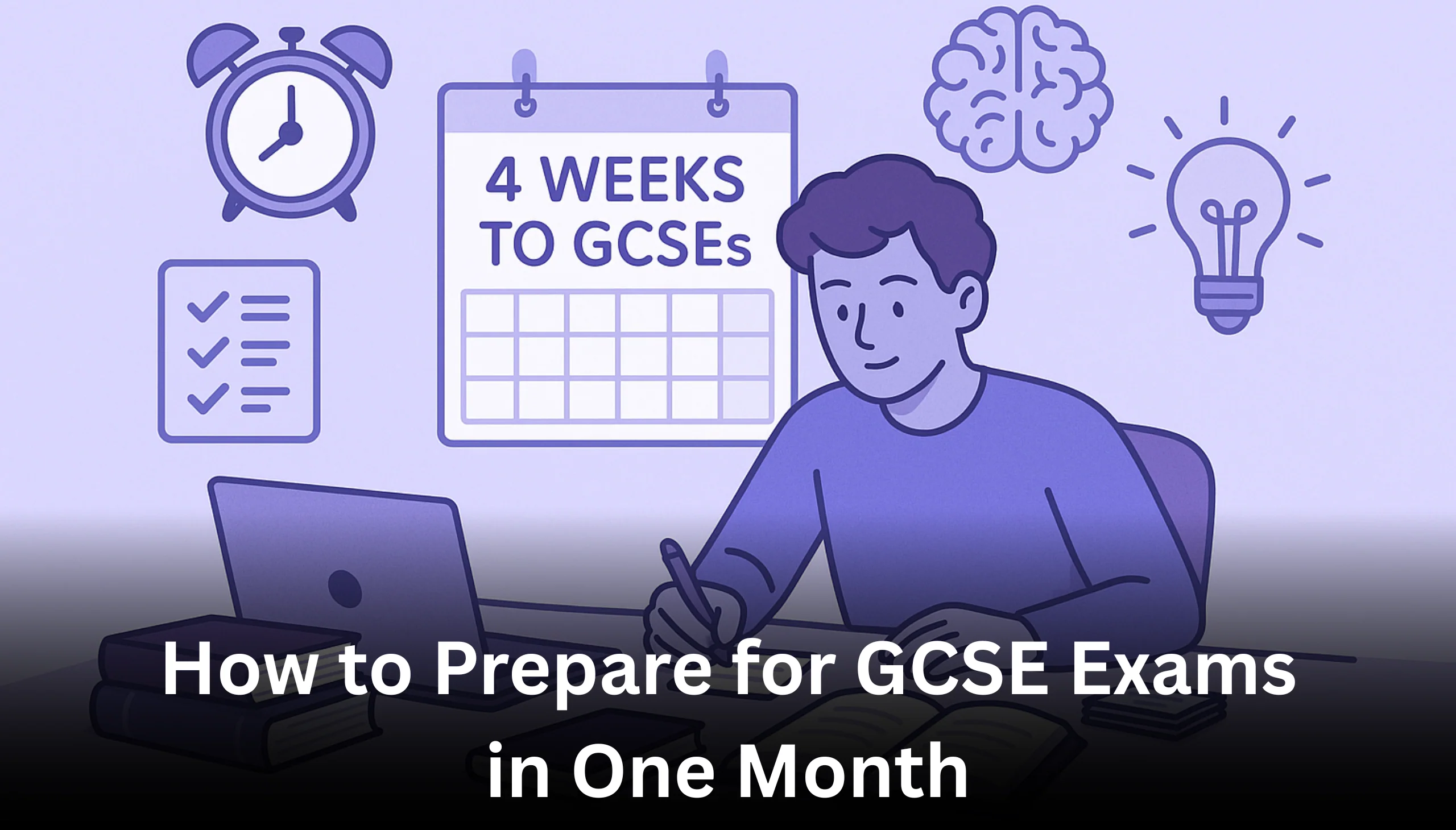Failing a GCSE can feel overwhelming, but it doesn’t mean your prospects are doomed. In the UK, GCSEs are stepping stones to A‑levels, T levels, apprenticeships and employment, so knowing what happens if you fail a GCSE and what you can do next is most crucial. This guide will show you what constitutes a fail, how schools and exam boards handle low grades, and all the options available for students and parents.
Jump to Section
Understanding GCSE Grades and What Counts as a Fail
Before exploring options, it’s important to understand how GCSE grading works. In England, grades range from 9 (highest) to 1 (lowest). A grade 4 is considered a standard pass, and a grade 5 is a strong pass. Anything below grade 4 (i.e., grades 1–3) is technically a fail, particularly in core subjects such as English and maths. In Wales and Northern Ireland, the A*–G scale still applies, where a grade C (or C* in Northern Ireland) is the standard pass.
How many GCSEs do you need?
Most students take nine or ten GCSEs, although the minimum required for post‑16 study is usually five GCSEs at grade 4/C or higher, including English and maths. Colleges and sixth forms often demand at least four to five passes to enrol, and some A‑level subjects require a grade 5 or above in the same GCSE. Failing one GCSE may not stop you progressing, but failing multiple core subjects can limit your options.
Core vs optional subjects
English language and maths are compulsory across England and Wales, and you will normally study science (single, double or triple award). If you fail English or maths (grade 3 or below), you must continue studying them until you achieve a grade 4 or an equivalent qualification. Schools also require at least one humanities (history or geography) and sometimes a language, but failing these does not carry mandatory retake requirements.
Immediate Impact of Failing a GCSE
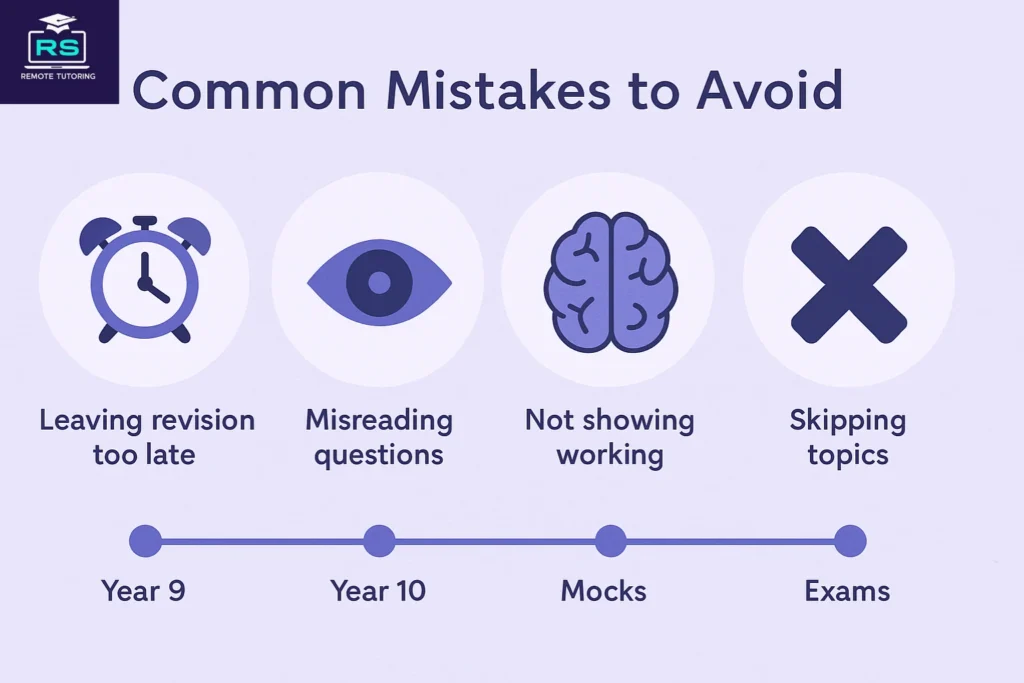
Entry to sixth form or college
A typical sixth form entry requirement is five GCSEs at grade 4 (C) or higher, including English and maths. If you miss one pass grade, speak to the sixth form or college; many institutions are flexible and may let you start A‑levels or vocational courses while resitting the failed GCSE. However, failing more than one key subject can disqualify you from certain courses or mean starting at Level 2 instead of Level 3.
Progression to apprenticeships and employment
Employers and apprenticeship providers often expect passes in English and maths. Many Level 2 or Level 3 apprenticeships require at least two GCSEs, and some include additional training to help you achieve the required level. For entry‑level jobs and apprenticeships, failing a GCSE may not be a deal‑breaker, but you will still need to improve your skills to progress.
What about your exam certificates?
When you retake GCSEs, both your original and retake grades appear on your results transcript. For personal use (e.g., UCAS applications), you can use the highest grade achieved; retaking a GCSE does not erase your original grade. Schools and college performance tables count only the first attempt, but for your own prospects, you can keep the better mark.
Options After Failing a GCSE

Failing a GCSE is frustrating, but there are multiple paths forward. The right choice depends on which subject you failed, your career ambitions, and how you prefer to learn.
1. Resit the GCSE Exam
Resitting means taking the same GCSE exam again. This is mandatory for maths and English if you achieved a grade 3 or below. For other subjects, resits are optional.
- When can you resit? Most exam boards offer resits in the November exam series for English language and maths. Other subjects can only be retaken in the summer series. For example, the 2026 resits for maths occur on 4 Nov (Paper 1), 5 Nov (Paper 2) and 7 Nov (Paper 3). Results for November resits are released in January.
- How to enter a resit: Schools usually organise entries for current pupils. If you left school, you must register as a private candidate through an exam centre. Fees vary: mandatory resits in English and maths are free; optional resits or improvements are charged.
- What to expect: The exam format and mark schemes remain the same. If you need support, consider joining revision classes, using past papers, and seeking help from a tutor.
2. Retake the GCSE alongside another course
If you want to progress to Level 3 courses (A‑levels, T levels or BTEC Nationals) but failed a key subject, many colleges allow you to retake your GCSE alongside your new course. This is common for maths or English. You attend lessons for your main course and have extra classes to prepare for the resit. Balancing both can be challenging, so plan your study timetable carefully.
3. Take Functional Skills qualifications
Functional Skills qualifications in English and maths are often accepted by employers and apprenticeship providers as equivalents to GCSE passes. They focus on practical application (e.g., budget calculations, professional communication). This option is particularly useful if you struggle with GCSE exam techniques or need a faster route to meet apprenticeship entry requirements. However, not all universities accept functional skills as equivalent to GCSEs, so check your intended progression.
4. Explore equivalent Level 2 qualifications
You can switch to vocational or technical qualifications at Level 2. Options include:
- BTEC Firsts and Tech Awards: Coursework‑heavy qualifications that combine practical and theoretical learning in subjects like business, IT or health and social care.
- NVQ Level 2 certificates or diplomas: Recognised vocational qualifications often completed in the workplace or at college.
- T Levels (foundation year): The new T Levels offer a 45‑day industry placement along with classroom study. Some providers run T Level transition programmes if you don’t yet meet the entry requirements.
- GCSE alternatives such as IGCSE: Some students retake using the International GCSE (IGCSE), which may have coursework instead of speaking exams or slightly different content. This can suit those who found the standard GCSE format difficult.
These qualifications allow you to continue progressing without repeating an entire GCSE year. They may provide a more practical learning approach and can lead to Level 3 qualifications or apprenticeships.
5. Start an apprenticeship or traineeship
Apprenticeships and traineeships are “earn‑while‑you‑learn” options that combine paid work with training. There are over 670 high‑quality apprenticeships in fields ranging from digital marketing to engineering. Entry requirements vary; some employers accept applicants without GCSE passes if they are willing to take functional skills alongside the job. If you enjoy hands‑on learning and want to enter the workplace, this path may suit you.
6. Appeal your GCSE result
If you believe your exam grade is wrong, you can appeal. Appeals must be lodged through your school or exam centre. The exam board will review the marking and can adjust your grade. Be aware that your grade could be lowered as well as raised. Appeals are free for grades 1–3 in English and maths, but may cost if you simply want to improve your pass.
7. Consider distance or online learning
If attending a local college is difficult, consider online GCSE courses. Many providers (including RS Remote Tutoring) offer live classes or recorded lessons with tutor support. They allow you to study at your own pace and retake exams as a private candidate, which is ideal for students who need flexibility or live far from exam centres.
Preparing for Your GCSE Resits
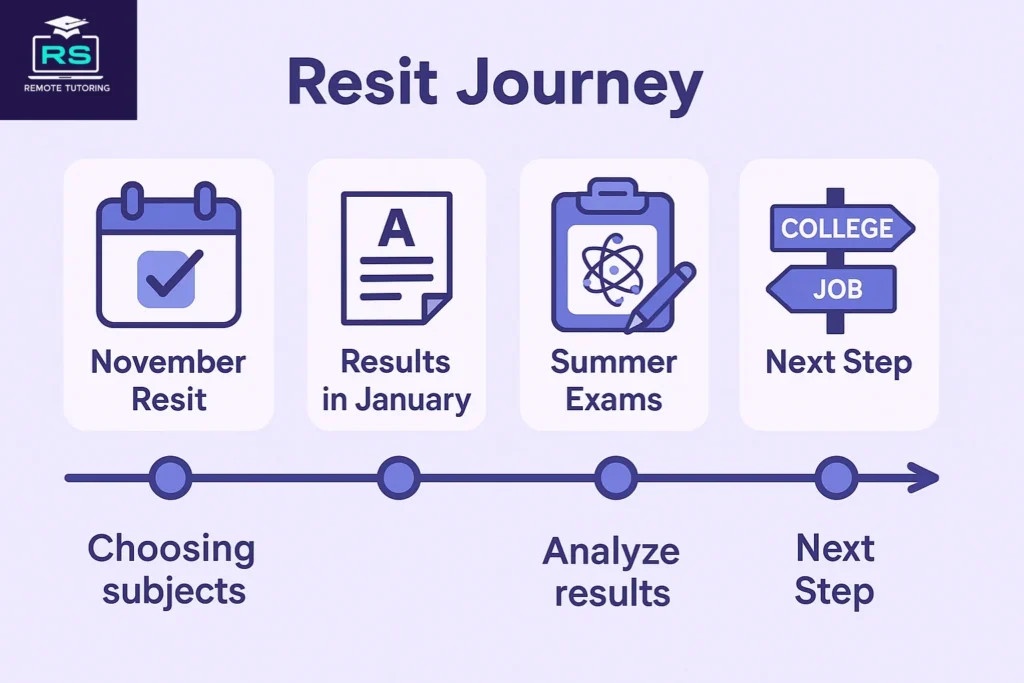
If you decide to resit, planning and preparation are key. Here are steps to increase your chances of success:
Diagnose your weak areas
Review your exam script and mark scheme to understand where you lost marks. Did you run out of time? Did you misunderstand the question? Identify topics that need improvement and focus your revision there. Many students benefit from using examiners’ reports, which highlight common mistakes.
Make a realistic revision plan.
Start revising early and break your study into manageable chunks. Aim for short, focused sessions with regular breaks. Use a combination of:
- Past papers: Work through past exam papers under timed conditions. This helps with time management and exam technique. Review your answers using the mark scheme to identify areas to improve. Past papers are widely considered one of the best ways to prepare for resits; doing them helps you understand what examiners look for and how questions are structured.
- Revision guides and videos: Use subject‑specific revision guides, online tutorials and videos to revisit key concepts. For example, if you failed maths or science, concentrate on the core topics (algebra, number, geometry for maths; biology, chemistry and physics fundamentals for science).
- Flashcards and quizzes: Use flashcards or apps to test yourself on formulas, definitions, and key facts. Active recall and spaced repetition improve long‑term retention.
- Online tutoring: Working with an experienced tutor can provide personalised support. Tutors can identify weak areas, explain tricky topics and provide targeted practice.
Improve exam technique
- Read questions carefully: Many students lose marks by misreading the question. Underline keywords and command words (e.g., “explain”, “compare”, “evaluate”) and plan your response accordingly.
- Show your working: In maths and science, you can gain method marks even if the final answer is wrong. Always show each step clearly.
- Answer all questions: Don’t leave questions blank. If you don’t know the answer, write something or make an educated guess. For multiple‑choice questions, never leave blank answers; cross out options you know are wrong and guess from the remaining choices.
- Manage your time: Stick to a schedule. Aim to finish with enough time to review your answers. If you get stuck, move on and come back later.
Take care of your well-being
Revising for resits can be stressful. Make sure you:
- Take breaks: Short breaks prevent burnout. Use breaks to stretch, go for a walk or do something you enjoy.
- Eat and sleep well: A balanced diet and adequate sleep improve concentration and memory. Don’t pull an all‑nighter before the exam.
- Ask for support: Talk to parents, teachers or counsellors if you feel overwhelmed. Many schools offer revision workshops, study groups or mental health support. The National Careers Service also provides free advice.
FAQs About Failing and Resitting GCSEs
What happens if I fail my maths or English GCSE?
You must continue studying maths and English until you achieve at least a grade 4 or an equivalent qualification. Schools typically enrol you in resit classes or functional skills courses. You will normally resit in November or the following summer.
Do I have to pay for resits?
If you failed to achieve a grade 4 in maths or English, resits are free. Optional resits (e.g., retaking to improve a grade from 4 to 5) usually incur exam fees, and you may need to pay tuition if you’re no longer enrolled in a school.
Can I appeal my GCSE results?
Yes. Talk to your school or exam centre, which will submit an appeal to the exam board. Appeals are free if there’s evidence of a marking error, but can be charged if you simply want a remark.
Will failing a GCSE ruin my chances at university?
No. Many universities care most about English and maths, and a solid set of GCSE grades; however, failing a core subject can affect entry to certain courses. Resitting a GCSE is better than leaving a fail on your record. Universities often look more at A‑level or Level 3 performance, but some courses specify GCSE grade requirements (e.g., medicine requires high grades in science and maths). Contact the admissions office or a careers advisor to discuss your options.
What if I failed all my GCSEs?
If you didn’t achieve any passes, take time to reflect on why. Maybe you chose the wrong subjects, faced personal challenges or lacked study skills. Speak with your school and family about retaking Year 11, transferring to a different school, or switching to vocational courses or an apprenticeship. There’s no shame in taking an extra year to get your qualifications. Identify the support you need and make a plan.
Is there an age limit for taking GCSEs?
No. You can retake GCSEs or alternative qualifications at any age. Many adult learners return to education to improve their GCSE grades. Online and evening courses make this more accessible.
Tips for Parents Supporting a Child Who Failed a GCSE
Have open conversations
Avoid blame and ask how your child feels. Understand the reasons behind the low grade: was it exam nerves, lack of revision, or difficulty understanding the material? Work together to create an improvement plan.
Contact the school or college.
Teachers can explain what support is available: resit classes, catch‑up sessions, mentoring or counselling. They can also advise on whether your child should resit, retake or explore vocational alternatives.
Create a structured study environment.
Provide a quiet space to study. Help your child design a realistic timetable balancing revision, schoolwork and hobbies. Make sure they have the necessary resources (revision guides, stationery, devices) and a reliable internet connection if they’ll be studying online.
Celebrate small successes
Focusing solely on grades can be demoralising. Celebrate improvements in practice tests or seeing progress in specific topics. Praise effort and resilience as well as results.
Seek professional help if needed.
If your child struggles with a particular subject, consider hiring a tutor. A good tutor will provide personalised guidance, break down complex concepts and boost confidence. At RS Remote Tutoring, our qualified teachers offer one‑to‑one online sessions across subjects including English, maths, science and more.
Real Student Stories: Learning from Failure
Failing a GCSE can feel isolating, but many people have been there and gone on to succeed. Here are a few stories:
- Sophie (Maths, grade 3 ➜ 5): “I froze in the maths exam and misread questions. My teacher suggested I retake it in November. I joined a small study group and practised one past paper a week. By January, I’d passed with a 5 and went on to study business at college.” She learned to manage exam stress through practice and improved her exam technique.
- Jamal (Science, grade 2 ➜ Functional Skills & BTEC): “Science wasn’t my strength, and I failed all three sciences. Instead of retaking, I switched to Functional Skills for maths and English and started a Level 2 BTEC in engineering. The practical coursework suited me much better. Now I’m on a Level 3 engineering course and working towards an apprenticeship.” His story shows that vocational routes can be successful.
- Emily (English Language, grade 3 ➜ 4): “I spent my GCSE years battling anxiety and missed a lot of school. After failing English, I took a year out to focus on mental health and retook the exam online with the support of a tutor. The flexible timetable and personalised feedback helped me pass. I’m now studying psychology at college.” Emily’s experience emphasises the importance of wellbeing and personalised support.
Get Support and Plan Your Next Steps
Failing a GCSE isn’t the end of the road – it’s the start of a new path. Whether you decide to resit, retake alongside college, switch to a vocational qualification or start an apprenticeship, there is a route that suits your goals and learning style. At RS Remote Tutoring, our experienced tutors have helped countless students improve their grades and regain confidence. If your child needs personalised guidance to turn things around, book a free consultation to discuss how we can support you through the resit process and beyond.
Final Thoughts
Failing a GCSE can be disheartening, but understanding your options empowers you to move forward. Speak to your school or college, explore alternative qualifications, and create a realistic improvement plan. Remember that many successful people have overcome setbacks; it’s how you respond that counts. With a clear strategy, support from tutors and family, and dedication, you can transform a disappointing result into a stepping stone toward future success.
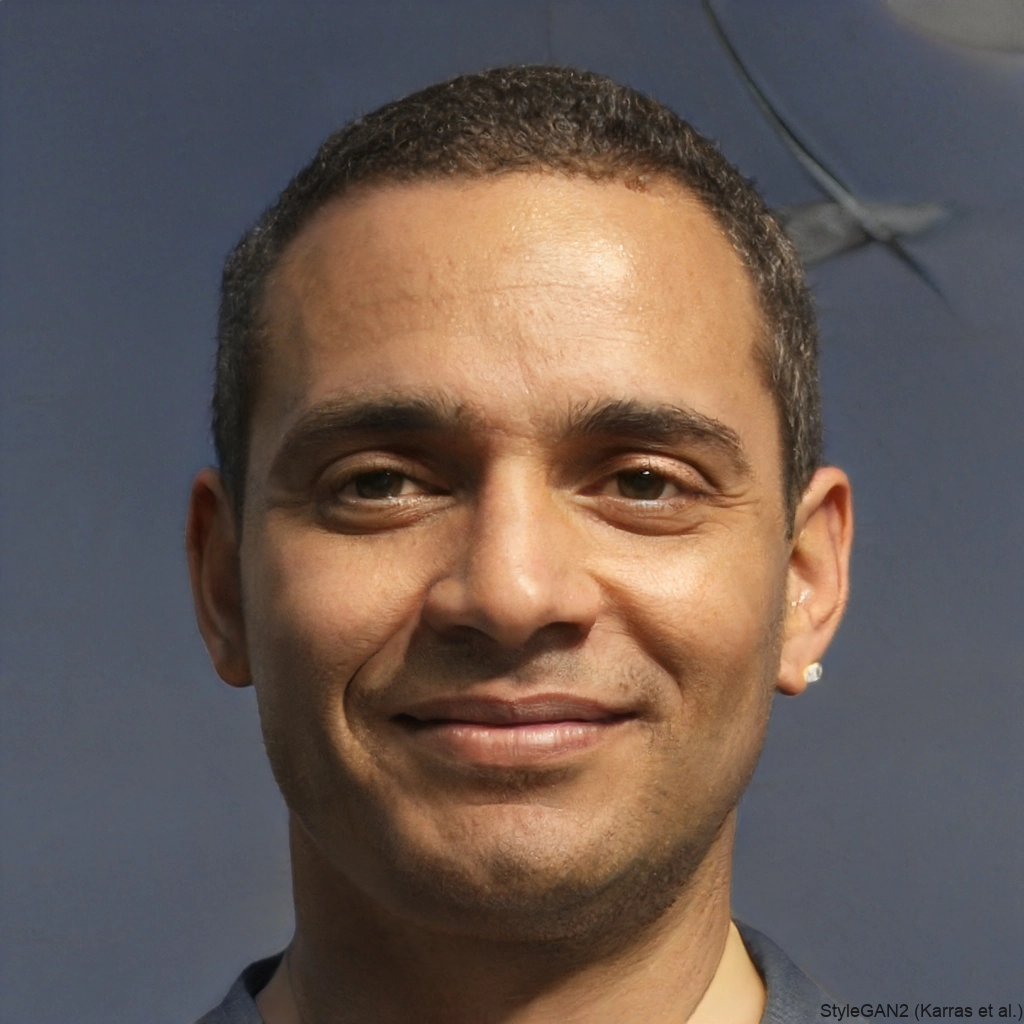
Raja specializes in Physics and Maths, with over 5 years of experience. He offers KS2, KS3, and GCSE Science and Maths lessons. He graduated from one of the top universities in the UK.

